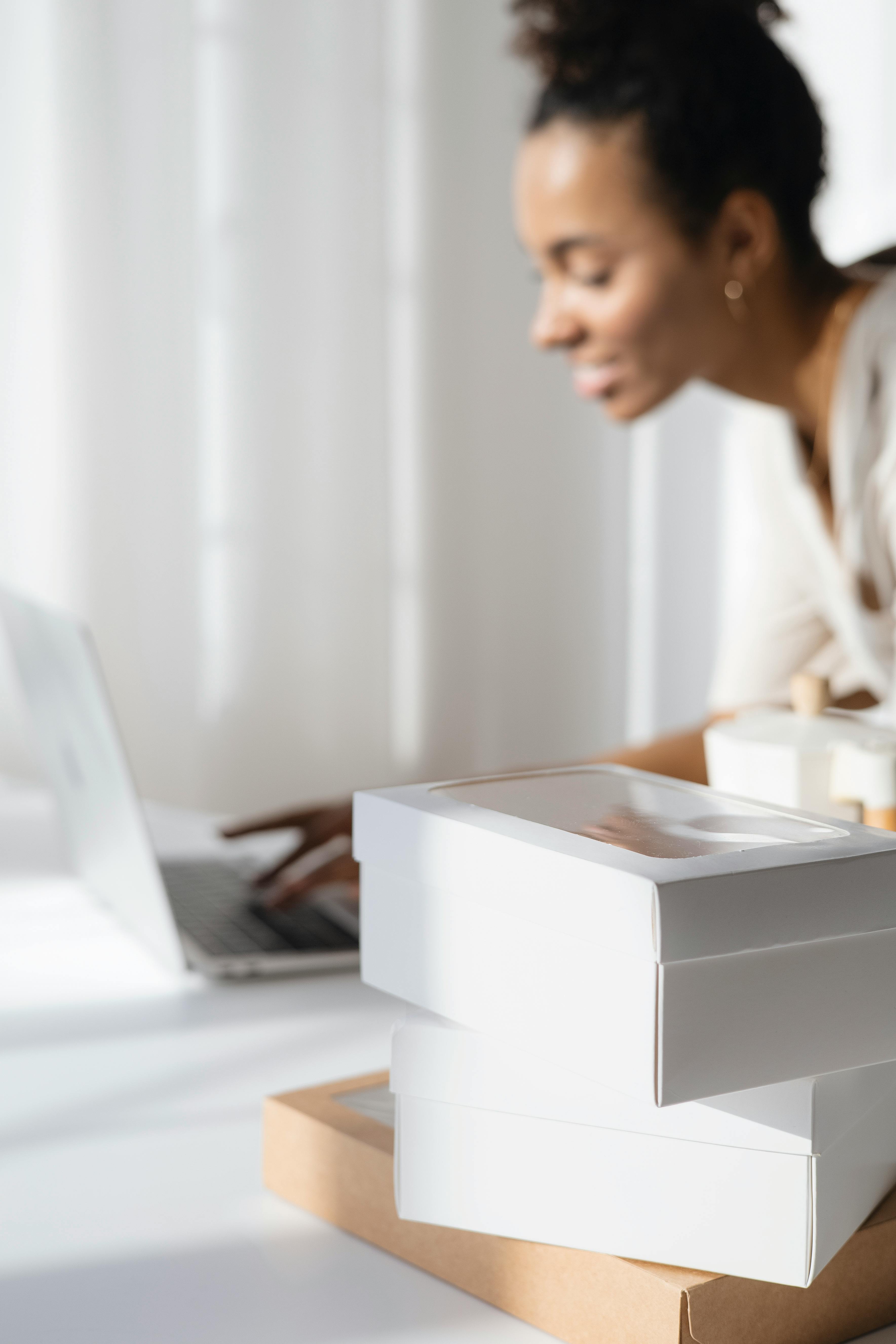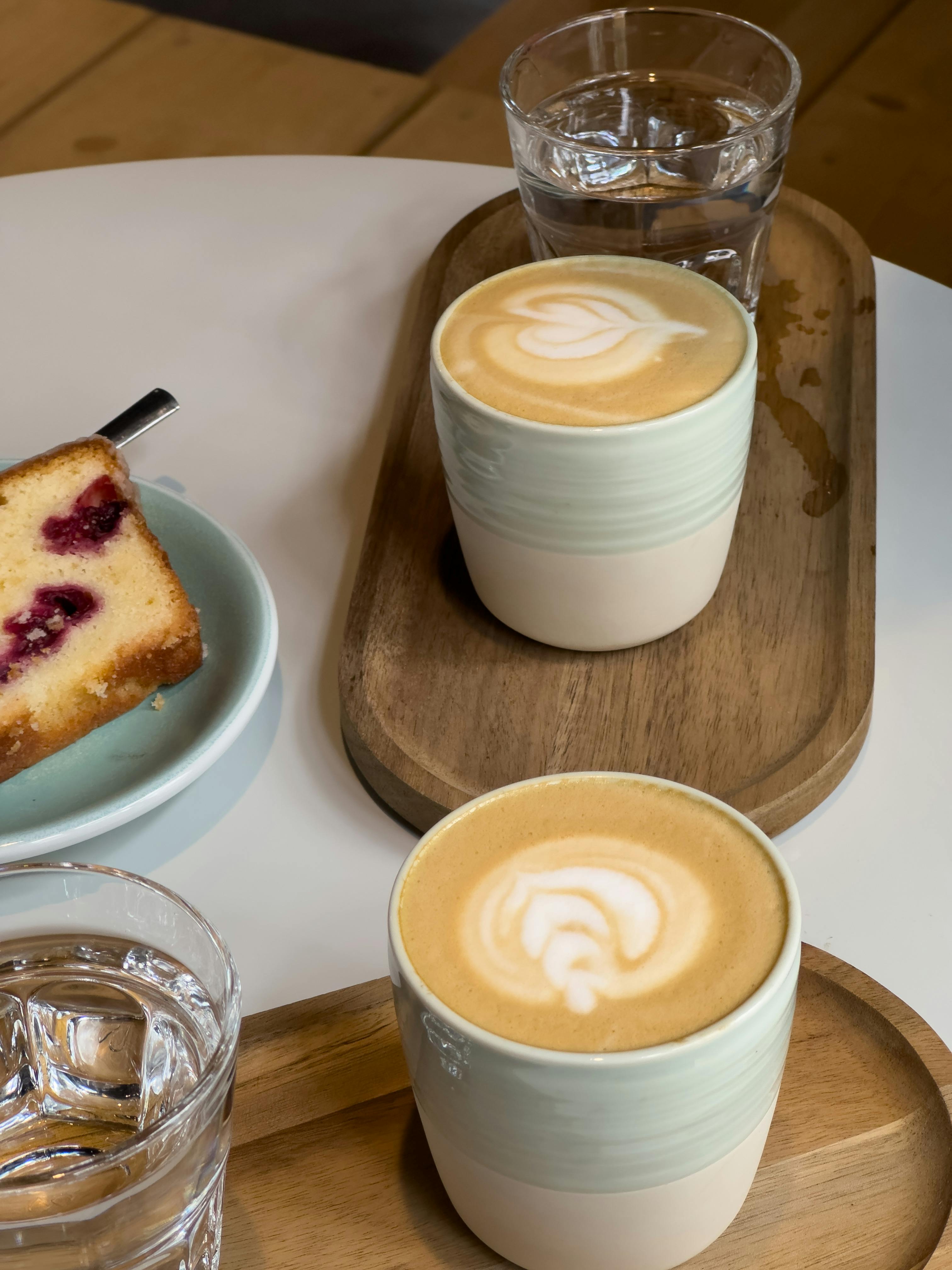How to Open a Bakery in the Bahamas: Full Business Startup Guide
Ever pictured yourself waking up before sunrise, the sun only just peaking over turquoise water as you knead dough for cinnamon rolls, with the humid Bahamian breeze sneaking through your open bakery door? Honestly, I have. And to anyone who thinks, “Surely, opening a small bakery in paradise can’t be all that different”—let’s just say, the journey is a unique mix of island realities, red tape, wild-weather adaptivity, and genuine joy when you finally see a line down the block for your fresh coconut bread. So, why do so many folks dream about launching a bakery business in the Bahamas—whether they’re hospitality veterans, passionate home bakers, or just folks seeking a lifestyle pivot? Simple: the rewards (done right) are as real as the daily challenges.
When I coached a young entrepreneur in Nassau a few years back, their surprise wasn’t about the recipe development—it was about navigating Bahamian import permits, hurricane contingency planning, and understanding what local palates actually crave. Fast forward to today, and I’m still learning new layers every time I advise a Caribbean F&B startup. Let’s clear away the fantasy (but keep the fun!) and dig into how to open a small bakery in the Bahamas: step-by-step, filled with recent examples, up-to-date legal guidance, and the nitty-gritty operational requirements most “best bakery startup” blogs tend to gloss over1.
Why Open a Bakery in the Bahamas?
Let’s be blunt: the Bahamas isn’t just another “tropical market.” Its baking scene is surprisingly dynamic—and, in many ways, it’s experiencing a renaissance as Bahamian tastes evolve post-pandemic, tourism rebounds, and entrepreneurial support grows2. While Nassau and Freeport anchor the action, there’s demand—and opportunity—on out islands, especially for bakeries that balance local tradition with creative flavors or healthier twists.
Why do so many small bakery startups actually thrive here? From my work advising island F&B entrepreneurs, it’s almost always a mix of these factors:
- Diverse customer base: Local residents, expats, cruise passengers, and resort staff all looking for fresh, authentic baked goods.
- Tourism momentum: With over 7 million annual visitors (pre-COVID), bakery businesses benefit directly from hospitality and event demand3.
- Supply/demand gaps: Many imported pastries are expensive, meaning well-made local bakery fare is highly valued.
- Strong cultural roots: Families have been baking coconut bread and guava duff “from scratch” for generations. Authenticity sells—especially if you’re weaving in personal stories or local sourcing.
- Entrepreneurship support: Increasingly, Bahamian government and business groups are helping reduce red tape for food startups and expanding small business grants4.
Point is, you don’t need a massive brand or decades of international F&B experience. What matters is genuine commitment, operational savvy, and a willingness to learn Bahamian nuances (not to mention, adapt to last-minute supply challenges or cyclone alerts).
Business Planning & Vision
You can’t just romanticize owning a bakery in the Bahamas. (I’ve tried. It ends with disaster, usually involving under-proofed dough and confused customs officials.) You must clarify your vision. Key questions:
- Why do you want to run a bakery here? Lifestyle change, legacy, or genuine passion?
- Who is your customer (locals, tourists, resorts) and how will you serve their specific needs?
- What’s your unique story or product? (Is it Bahamian classics with a modern twist, or imported French patisserie prepared with local guava?)
- What season will you open? (Peak tourism vs hurricane season—this timing genuinely matters for your launch)
“But isn’t my passion enough?” Well, yes and no. It’s a start. But, practically, you’ll need a draft business plan—even a simple 3-page version works—covering vision, target market, startup costs, projected income/expenses, menu direction, and initial marketing ideas.
Speaking from personal experience, nothing moves at “big city speed” in the Bahamas. Last year, a Miami-trained pastry chef I know tried launching a downtown Nassau bakery in 60 days; it took five months. (Their advice? “Chill. Find a good local attorney. Learn what you don’t know, fast.”)
Registration, Licenses & Local Laws
This is the moment—every aspiring bakery owner’s rude awakening. From my time consulting on five different F&B openings in Nassau and Abaco, no stage gets more complaints or causes higher stress. Honestly, I’ve found the legal steps straightforward once you expect the unexpected and lean on local expertise5.
- Registering your business: Start with the Registrar General’s Department. Choose a simple, memorable Bahamian name that fits your bakery’s story (and check for similar names already registered!)
- Obtaining business & commercial food licenses: Without the Ministry of Health’s food establishment certificate and business license from the Bahamas Investments Authority, you cannot legally operate6.
- Food handler permits: All team members must take certified food safety training (usually a one-day course) and pass a medical exam.
- Import and customs: You’ll likely import flour, yeast, or specialty items. Secure a VAT number, arrange customs brokerage, and check allowed commodities with Bahamas Customs Service.
- Local council approvals: Depending on your island, you’ll need sanitation, zoning, and fire compliance sign-off.
“That seems like a lot.” It is. But having your documents ready early, and building supportive relationships with government contacts, pays off. Most delays I’ve seen come from missing paperwork or mistimed health inspections.
In the Bahamas, the original “bakeries” were thatched sheds built by early settlers. Breads—like the iconic coconut or cassava loaf—were baked in wood ovens fired with local hardwoods. These rustic classics are still bestsellers, especially during local festivals!
“No matter how well planned your menu or décor is, overlooking a single food safety protocol can shut you down before your first sale. Regulations are strictly enforced—especially in Nassau and Freeport.”
- Review the Ministry of Health (Government site) for the most recent requirements.
- Consider hiring a local lawyer or F&B consultant, particularly for non-Bahamians.
- Cross-check holidays and parliamentary schedules—public offices may close unexpectedly during election season or major events.
Location, Target Market & Foot Traffic
Let me just say, the success of a Bahamian bakery is all about three things: location, location, location (and, okay, the right pricing strategy). Recently, I toured a once-buzzy out-island spot now struggling because cruise schedules shifted and local foot traffic fizzled out. The bakery with the biggest line? Tucked next to a fish fry, open from dawn till noon, and serving fresh johnny cakes to hotel staff on their way to work.
| Location Type | Customer Base | Pros | Potential Cons |
|---|---|---|---|
| Downtown Nassau | Tourists, business crowd, event caterers | High volume, visible, premium pricing possible | Costly rent, heavy competition |
| Resort/Marina area | Hotel guests, transient staff, families | Built-in demand, seasonal event catering | Tourist-driven seasons, staffing turnover |
| Suburban/Local | Residents, schools, local business | Loyal base, lower rent | Lower volume, more price sensitivity |
| Out Island | Locals, visitors, festivals | Underserved market, less competition | Logistics, weather/weather risk, smaller pool |
What I’ve learned is this: The Bahamas is a region where word-of-mouth matters, but so does being “on the right side of the road” for morning commuters. Seasonality can make or break you—so, before you commit to a lease, spend several weeks tracking nearby traffic at different hours and talk to potential neighboring business owners7.
“I started out convinced I’d open a late-night bakery, but in Eleuthera, almost everything ends by dusk. If I hadn’t adjusted to sunrise baking, I’d have missed out on half my market.”
To stress again—don’t be afraid to experiment with pop-ups or bakery soft openings (even at local markets) to gauge real demand before signing any long-term commitment.

Menu Creation, Sourcing & Local Tastes
Here’s where the fun—mixed with the uncertain—truly begins. Every successful Bahamian bakery I’ve advised finds its “best sellers” through a blend of research and trial and error. What really delights me: the best island bakeries balance local icons (guava duff, coconut bread, johnny cakes) with inventive seasonal specials and gluten-free or health-conscious spins, all while adjusting for changing import realities post-COVID8.
I used to think I’d need a Parisian patisserie-level menu just to compete. The reality? Simple, consistent, and *fresh* sells more than a complicated spread. Some menu-planning basics:
- Research favorite local breads and sweets. (Ask market vendors, not just Google.)
- Survey hotel staff and taxi drivers—they know what tourists crave and locals buy.
- Plan for daily/weekly specials using in-season produce—think guava, tamarind, mango, and even locally made jams.
- Have at least one gluten-free or allergy-friendly option; word travels fast in small communities.
- If you’re importing chocolate or specialty ingredients, always have a backup supplier or recipe tweak ready.
“Every bakery should have at least two signature items that no other shop makes quite the same way. People come back for what’s unique—especially if they can see or taste the story behind it.”
Sourcing & Supply Chain Realities
The single most unpredictable challenge I’ve encountered—outside of permitting and weather—is ingredient sourcing. It’s simply more complex (and sometimes more expensive) than first-time owners expect9. What do you do when the ship with your vital flour order is delayed by a week? You improvise—as long as you built strong relationships with alternative suppliers (or friendly competitors).
- Use local wholesalers for your bulk staples whenever possible (check with Milo Butler & Sons, Asa H. Pritchard)
- For specialty flours or imported goods, align deliveries with peak season schedules for cost efficiencies
- Monitor the Ministry of Agriculture’s import advisories to avoid getting caught out by new restrictions
Start-Up Costs, Financials & Funding
Let’s clear up the biggest myth: “It’s so much cheaper to open a bakery in the Bahamas than North America.” Not quite true. Real-world bakery set-up can cost anywhere from $15,000 to $65,000+ USD, factoring equipment shipping, kitchen renovations, and initial inventory10.
Here’s a rough breakdown (updated for 2024) based on interviewing local bakery owners, new business grant recipients, and accountants:
| Start-Up Expense Category | Low Estimate (USD) | Typical Range (USD) | Notes |
|---|---|---|---|
| Rent/Security Deposit | $2,000 | $2-10k | Varies by location & season |
| Licenses/Permits/Fees | $800 | $800-3,000 | One-time & annual |
| Renovation/Build-Out | $4,000 | $4k-25k | Kitchen, front room, plumbing |
| Equipment (Ovens, Mixers, Display) | $3,500 | $3.5k-15k | Import shipping, customs |
| Initial Inventory | $600 | $600-2,000 | Flour, yeast, sugar, packaging |
| Staff Recruiting/Training | $400 | $400-2,000 | First 2-3 team members |
| Marketing/Branding Materials | $250 | $250-1,200 | Website, opening flyers, local promo |
| Total Estimate | $11,550 | $11,000–$58,200 | Highly variable by vision/scale |
On second thought, let me clarify that unexpected costs happen—especially with customs duties on imported equipment, or when hurricane retrofitting is required. Bake in a 10-15% “rainy day” reserve into your initial funding goal.
- Bahamian government small business grants (check latest BDB & SBDCB programs)
- Loans from Bahamas Development Bank and commercial banks (collateral usually required)
- Crowdfunding or partnership with local investors
“Our initial start-up cost doubled when we realized we needed climate control for the kitchen and extra water tanks—unexpected but essential on a hot, humid island with unreliable supply.”
If you’re not sure how to draft a forecast, start with a simple spreadsheet. Project your first 3–6 months’ sales and cost of goods (Google “bakery cash flow template Bahamas” for local examples). Adjust weekly—your plan will evolve.
Hiring, Training & Team Culture
Building a true bakery community goes far beyond two hands and a mixing bowl. My most memorable island bakery visits are always the ones where staff genuinely greet you, remember your favorite pastry, and maybe even ask about your family. The best owners invest time in training—typically starting with two or three cross-trained bakers/front-of-house staff who rotate jobs (and, in practice, handle everything from social posts to hurricane prep).
- Prioritize certified food safety training for all hires—inspectors check records regularly.
- Consider hiring at least one experienced “local” baker—family recipes and island baking techniques are invaluable.
- Foster a positive, flexible team culture; lean on team input for new menu ideas or adjusting hours during slowdowns.
- Plan regular team meetings (even once-a-month over coffee before sunrise works wonders).
“Bakery crews that trust and communicate openly do better during high-stress weeks—especially when the power goes out mid-bake!”
Grand Opening & Ongoing Operations
Now for the real nerve-test! Launching a bakery in the Bahamas is as much about getting the word out as delivering your first tray of guava duff piping hot. Timing your opening—ideally to coincide with a local event or festival season—can deliver far more foot traffic than any social post alone (though social channels matter immensely).
- Soft launch “friends and family night” to gather feedback in real time
- Partner with nearby cafes, hotels, or event organizers to offer mini-samples
- Host a local radio or newspaper feature—traditional media still moves people here
- Keep a guest book or digital loyalty card to spark repeat visits
- Monitor local weather and tourism reports as part of weekly strategy meetings
Wrapping Up: Lessons, Resources & Next Steps
What’s the final takeaway? Opening a bakery in the Bahamas isn’t about replicating a model from Miami or Toronto—it’s about integrating cultural tradition, island logistics, and a dash of personal resilience. Every opening, I see brand-new surprises—supply chain quirks, overnight local flavor trends, or last-minute regulatory changes. But the reward (in my honest view) is genuinely special. You’re serving joy, bread, and culture on an island that’s both connected to the world and proud of its own delicious heritage.
Wherever you are in the planning process: Visit local bakeries, chat with owners, track market trends, and don’t let perfection stop your progress. Join Bahamian F&B forums or Facebook groups—there’s always a new lesson one sunrise away.
References
Citations & Further Reading



